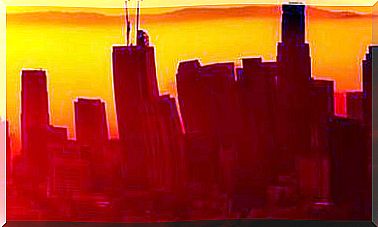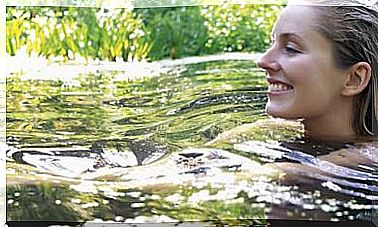5 Keys To Finding Our Way
How would a child see your life? And an old man? Mentally placing ourselves in another situation or under another skin reveals unknown aspects of ourselves.

We know that it is very exciting to live for a few years in a place or country other than the one in which we grew up. However, as an often-repeated quote asserts, the true journey is not about discovering new places, but about seeing with new eyes.
Observing the world with a new look allows us to take leaps in the journey of life and personal development.
Imagining who we are and what we do from a new perspective renews the stagnant waters of habit and inertia, and is usually a step forward on the path of self-realization.
How to discover your potential
A technique that helps to visualize what deep down we want is to imagine the opposite of what we know we don’t want. For example, let’s define characteristics that we do not like in the education that prevails today and turn them around. How is education today? Boring, regulated and between four walls. How could it be? The opposite: stimulating, spontaneous and outdoors.
Abraham Maslow, the main promoter of humanistic and transpersonal psychology in the sixties of the last century, once wondered how one can live in a world of limitations and pettiness while still having one foot in the world of beauty, goodness and the truth, that world that the heart tells us is much more real.
His response was a long list of suggestions that we freely adapt below. What they have in common is that they invite us to imagine what we are and what we do from another perspective. For example, Maslow suggested, try new things, seek new experiences. Collaborate altruistically in a good cause and see how you feel …
1. Look at the people who are admirable to you.
See what they do and what they think. Imagine that you speak or write not to the people who usually surround you, but to some of the great figures of history, such as Socrates, Hypatia, Leonardo da Vinci, Cervantes, Santa Teresa, Bach, Spinoza, Einstein or whoever you prefer.
Studying the biographies of exemplary people of his time, such as Eleanor Roosevelt, is precisely how Maslow developed a psychology that is not focused on problems and pathologies, but on our best possibilities.
He did not fall into the error of confusing healthy people with “normal” people (who only represent the average number of psychopathologies of each era). Healthy people are those who know how to fulfill themselves, fully developing their humanity and abilities.
2. Observe a person or a family situation as if you were doing it for the first time
With the fresh and open gaze of that moment. Also observe that same person or situation as if you know that you will never see them again. Or cultivate periods of silence and meditation and then return to everyday life with a renewed look.
Or let yourself be carried away by your imagination. Better yet, by intuition. Listen to your inner voice. As Maslow wrote, “many of us, most of the time (and this is something that applies especially to children and young people) we do not listen to each other, but we listen to the introjected voices of Mom, Dad, the System, the Elders, the Authority or tradition ”.
3. Deliberately seeks the realm of beauty
In museums and concert halls, in the classics of literature and philosophy, at sunrises and sunsets, in front of centuries-old or especially beautiful trees. Walk along the coast, or through the Pyrenees, the Picos de Europa, Gredos, Sierra Nevada.
Contemplate the landscape as a photographer or a painter would, calmly and attentively, until you begin to hear its secrets. Observe in detail the great little world of ants, bees, flowers, blades of grass, grains of sand.
Enter that small world without interfering with it. Behold it from full presence, vividly and unselfishly.
4. Play with children or babies
Learn from their spontaneity and their ability to be fully in the present. Or try playing with pets or other animals. Look at the thousand everyday things that overwhelm our understanding. Doesn’t spring seem like a miracle to you, or the look of a baby?
5. Get carried away by art
Also music, and all art, can transport us to new places. One of the attractions of good literature and good cinema is that they transport us to situations that are very different from those we experience on a daily basis.
They allow us to penetrate beautiful or terrible experiences and perspectives, near or far. After immersing ourselves in a good storytelling, or the intensity of a movie, sometimes we need some time to get back to being the person we were.
Or perhaps we are no longer so, because some of what we have experienced from that new perspective is fixed on us. We easily identify with the protagonist of the novel or film, or with some other of his characters, and we come to see the world with his gaze.
It is hard to read Demian by Hermann Hesse without identifying with the protagonist, and the same happens to us with The Little Prince by Antoine de Saint-Exupery and the narrating Ishmael Moby Dick .
Hayao Miyazaki’s animated films transport us to worlds brimming with both ingenuity and depth. John RR Tolkien’s stories take us to magical lands that help to imagine how our disenchanted world could be reenchanted. What would Frodo do in this situation? What would Sam do, or Gandalf, or Aragorn, or Éowyn?
The key is to change the look
The well-known quotation with which we began this article is a simplified adaptation of some lines by Marcel Proust in his novel The Prisoner , one of the volumes of In Search of Lost Time . The story tells us how a painting or a musical composition can impress and transport us.
And it is there that Proust explains that the true journey is that of imagination and perception:
“Having wings and a different respiratory apparatus, which would allow us to cross the vastness of space, would be of no use to us. Because if we went to Mars or Venus with the same senses that we now have, they would show us everything that we could perceive there with the same aspect that things on earth have. The only true journey, the only bath of youth, would not be to go to new landscapes, but to have other eyes, to see the universe with the eyes of another, of a hundred others, to see the hundred universes that each one of them sees, that each one of them is ”.
This is how, Proust concludes, how we can really fly from one star to another. With just a change of look.
The outer space race, in which so many millions have been invested, is nothing compared to the inner space race.
What we are looking for outside is already here, if the gaze and the imagination are awake.
Look with a new perspective
Mentally placing ourselves in another situation or under another skin can reveal unknown sides of ourselves.
- Child or old man. How would a child, or an elderly person with a rich experience, see your life or your situation?
- Different consciences. What image should birds, cats, beings with non-human forms of consciousness have of you?
- Far cultures. How is your daily life perceived from the perspective of a remote African village, an Amazonian ethnic group, an aboriginal community?
- Your life in power. Imagine the limitless possibilities that your situation harbors, right now.
- From the future. Fantasize that your life is part of a historical novel written a hundred or a thousand years from now.
- No technology. Imagine that the techno-industrial society is collapsing (there is no lack of studies that point to this). How would you live in a post-tech society?
- Priorities now. If you only had one year to live, what would you do? Surely those should be your priorities now.
- The child that you were. Just as you smile at three-year-olds today, imagine that you smile at the three-year-old boy or girl that you were.









